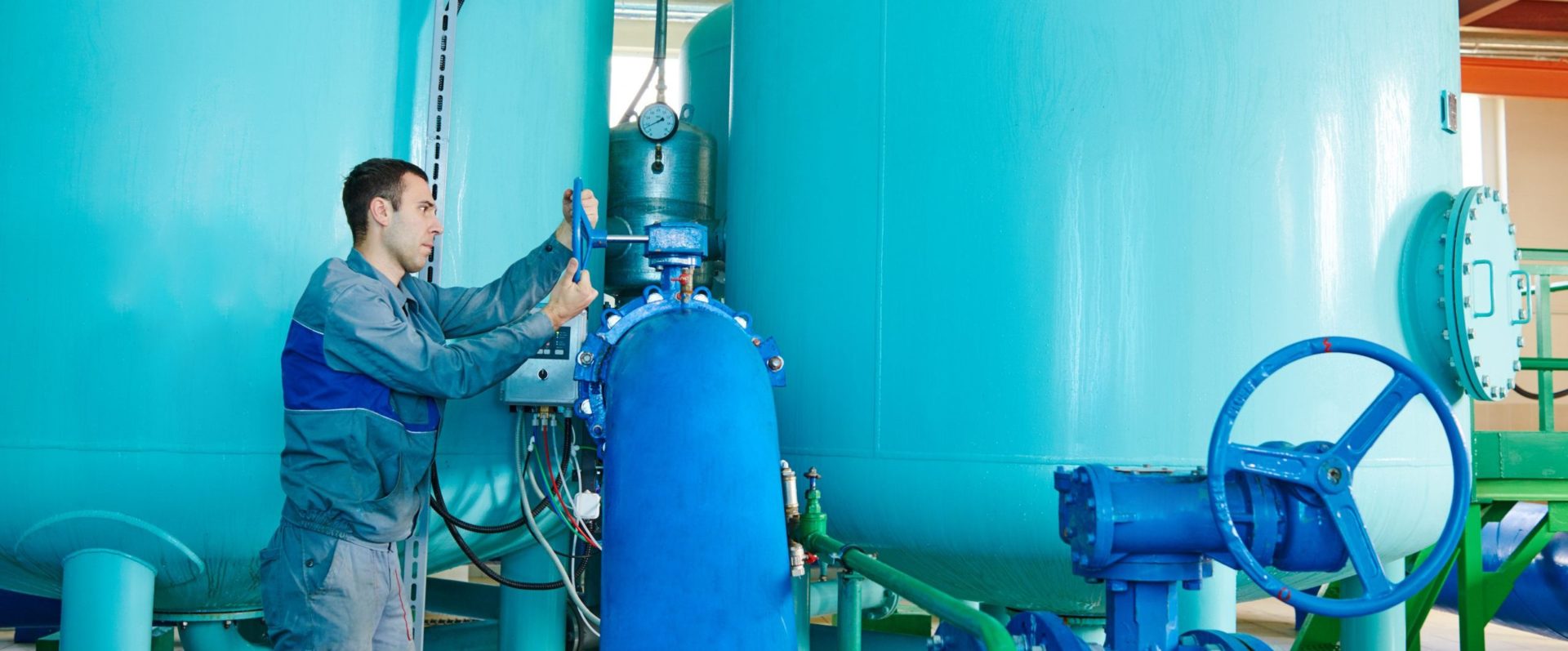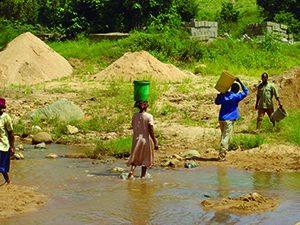The blue thread between asset management and the global water crisis
SIWI and Sweden’s Sustainable Investment Forum (Swesif) are engaging with investors, looking at both opportunities and challenges of working with water analysis, thereby enabling investors to lead by example and push for improved water management among their portfolio companies.
Water is a scarce resource that must be managed – already in 2019, World Resources Institute listed a grand total of 129 countries that face medium to high water stress. This is exacerbated by climate change and the erratic weather patterns that follow, which include increased drought and flooding.
All businesses are dependent on water at some point in their operations or supply chain, both within tech for cooling and agriculture for irrigation. Thus, if a company is not aware of its water risks, its long-term survival can become increasingly uncertain – posing a threat to investors. The webinar held with CDP on December 1st 2020 was attended by members of the Swesif network to encouraged the integration of water analysis in their day-to-day work since water constitutes a risk for companies and therefore also asset managers.
The growing scarcity of water indicates that securing a safe and affordable water supply will become increasingly difficult over the coming years. In spite of this, a growing number of companies are reporting an increase in water usage. If measures are not taken now, the UN forecasts that water demand will outstrip supply with 40% by 2030. This has widespread, potentially catastrophic consequences; for biodiversity; the human right to water; as well as the global economy. The wide scope of impact is why this issue must be made a priority now.
The water risks that companies are facing do not occur in a vacuum – companies are impacting water resources directly in both their operations and supply chain. CDP raised this during the webinar when presenting their tool the ‘Water Impact Matrix’, which is currently under development. For investors to be able to identify which companies are aware of their water impact and use this to push for improvement they need to start by being aware the water dependencies of different sectors. The main areas for improvement – where investors can focus today – are pushing for increased reporting and for businesses to adopt rigorous water policies. These were the key conclusions of the webinar.
There are a number of tools available for investors who want to start exploring how the global water crisis could affect the companies in their portfolio . These tools include Aqueduct from the World Resources Institute and The Water Risk Filter from World Wildlife Foundation. Investors who want a deeper insight into water and investment can start with the Investor Water Toolkit developed by Ceres. The CDP Water Questionnaire is a good starting point for asset managers who want to push for increased reporting.
Investors can start managing the water risks in their portfolios by initiating engagement dialogues with their investee companies. But how does one ensure a that these conversations are productive? During the webinar SIWI demonstrated how available data sources can provide a starting point for dialogue, using examples of data compiled by CDP and Sustainalytics. SIWI also presented scenario analysis as an approach to company dialogues which helps investors understand how the business model will need to adapt when global water availability becomes increasingly threatened. It also prompts reflection over whether the company has sufficient risk management strategies in place. This can provide a foundation for an ongoing conversation about the need to prioritise water.
The finance community is beginning to wake up to the risks climate change pose to their investments. And, as part of this awareness, they’re also starting to see the links between water and climate. Our task is to build on this momentum and ensure that water risk and opportunities are properly integrated as the financial community takes steps to actively engage with climate and wider sustainability issues. This joint project between SIWI and Swesif seeks to explore and identify opportunities to improve water analysis for asset managers.








